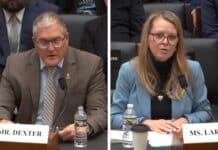(Center of the American Experiment) — In what will be an ongoing effort to track the ever-growing list of frauds perpetrated against state and local governments in Minnesota, I’ve started a spreadsheet tracker:
![]()
A few notes on what has and has not been included on the list:
There are many examples of Minnesotans defrauding the federal government directly (PPP, small business loans, etc.). These cases are not included.
The Feeding Our Future estimate is the one provided by the U.S. Department of Justice almost two years ago. Despite the addition of two dozen more defendants over the years, the original estimate has not been updated. My own estimate places the final figure at double that amount.
The child care (CCAP) fraud estimate is one provided by a whistleblower in the case. About the estimate, the legislative auditor wrote the following back in 2019:
“We did not find evidence to substantiate [whistleblower]’s allegation that there is $100 million in CCAP fraud annually. We did, on the other hand, find that the state’s CCAP fraud investigators generally agree with [his] opinions about the level of CCAP fraud, as well as why it is so pervasive.
Minnesota prosecutors have proven fraud in the state’s Child Care Assistance Program,
and we discuss those cases in Chapter 2. The level of fraud that prosecutors have
proven is about $5 million to $6 million over several years.Based on the challenges prosecutors face proving fraud in the Child Care Assistance
Program, which we discuss in Chapter 2, we believe there is more CCAP fraud than has
been proven in prosecutions. We were not, however, able to establish a reliable
estimate.”
The next item, frontline worker bonus pay, comes from a more recent auditor report. Auditors were only able to verify about $300 million of the $500 million spent on the program in 2022. Of the unverified $200 million, the $45 million figure is one auditor estimate of the ineligible share handed out. Whether that constitutes fraud depends on intent and legal definitions.
Most of the remaining items represent prosecutions by the state attorney general of Medicaid fraud of individuals or small groups. Medicaid is a federal program, but these frauds invariably involve services or entities overseen or licensed by the state.
More to come…
This article was originally published at the Center of the American Experiment.










